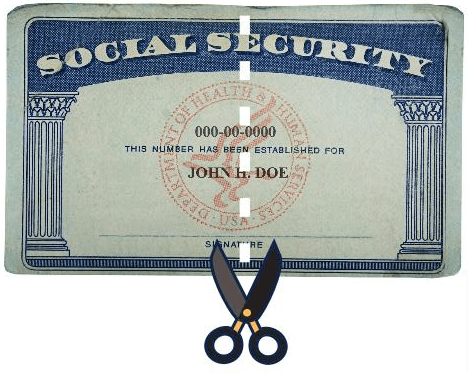
Along with Cherry Blossoms and the White House Easter Egg Roll, Spring has brought fresh talk of “entitlement reform” to the Nation’s Capital. Of course, Social Security and Medicare are not “entitlements.” They are earned benefits that Americans pay into during their working lives in exchange for retirement and health benefits during their senior years. Nevertheless, House Speaker Paul Ryan and other budget hawks prefer to perpetuate the “entitlement” myth. This week, Ryan said that fiscal responsibility means “reforming our entitlement programs.” “Reforming” is code for undermining Social Security and privatizing Medicare, two politically unpopular ideas that nonetheless seem to drive Ryan’s agenda. Never mind that Social Security and Medicare Part A are funded by workers’ payroll contributions and don’t contribute a penny to the deficit.
Meanwhile, House Budget Committee Chairwoman Diane Black (R-TN) is looking to end traditional Medicare through the budget reconciliation process in May, according to Congressional Quarterly.
“The coming fiscal 2018 plan is likely to include proposals to transform Medicare… into a premium support program. Under one House GOP model… people would be given a choice of traditional Medicare or insurer-run plans starting in 2024.” – Congressional Quarterly, 4/27/17
“Premium support” is an innocuous sounding term that could have dire consequences for seniors. What Diane Black means by “premium support” is converting Medicare into a voucher program. Seniors would be offered the option of leaving traditional Medicare to buy insurance in the private market using vouchers. These vouchers could never keep pace with rising premiums, meaning seniors would have to cover the difference or drop health insurance entirely. Older and sicker seniors would likely remain in conventional Medicare, causing the program’s cost to skyrocket, benefits to be cut, and eventually the death of Medicare itself.
The canard that Ryan and his party use to justify cutting benefits, reducing COLAs, and raising retirement ages is that Social Security and Medicare are going “bankrupt.” While it’s true that the trust funds for Social Security and Medicare Part A won’t be able to pay full benefits after 2034 and 2028 respectively without corrective action, there are modest and manageable solutions that won’t hurt the seniors who depend on them. Senator Bernie Sanders and Congressman John Larson (D-CT) have both offered common sense legislation to keep Social Security solvent for decades. Both bills ask the wealthy to pay their fair share by scrapping the income cap on payroll taxes. Larson’s legislation also increases the FICA tax by 1% over 25 years. (Larson says that for a worker earning $50,000 a year, the payroll tax bump equals one Starbucks coffee drink every 9 weeks). Instead of cutting benefits for our most vulnerable citizens – or raising the retirement age – these bills actually increase benefits and COLAs.
Medicare could be kept solvent well into this century by similarly modest and manageable means, if budget hawks like Ryan would stop insisting that privatization is the only fix. Congress could authorize Medicare to negotiate prescription drug prices (one of the biggest drivers of rising health care costs). Innovative methods for saving Medicare costs under the Affordable Care Act, many of which have already reduced healthcare expenditures, could be expanded instead of repealed. In fact, the Affordable Care Act itself extended the solvency of Medicare by four years. Repealing the ACA – as Ryan and President Trump are still struggling to do – hurts the long-term solvency of the program.
Ryan and many conservative Republicans ignore these alternatives because, at heart, they do not believe in federal programs that provide Americans with retirement and health security – which puts them at odds with the majority of voters. The latest National Committee poll indicates wide public support for progressive solutions for Social Security and Medicare – and significant opposition to the GOP approach. Seventy-nine percent favor increasing Social Security benefits by scrapping the payroll tax income cap. Sixty-five percent oppose raising the Medicare eligibility age. Ninety-three percent want Medicare to be able to negotiate prescription drug prices with pharmaceutical companies.
The National Committee’s social media community seems to agree. Comments on our Facebook posts over the past three months demonstrate deep skepticism about Republican talking points:
Bruce W. These programs are NOT “entitlements”–we have paid into them our entire working lives. If the income subject to SS fees was raised SS would be solvent for decades…
Suzanne S. Social Security has nothing to do with the deficit. It is a stand-alone program funded by workers. LEAVE IT ALONE.
Tom S. Social Security and Medicare are lifelines to millions of seniors; anyone who votes in favor of cutting or reducing benefits should be ashamed of themselves!
Adam R. Social Security has nothing to do with the general budget at all. FACT. It is not an entitlement, This is basically a Trust fund we have paid into all our working lives.
Americans intuitively understand that Social Security and Medicare are social insurance programs that they have already paid for through their hard-earned wages. For 82 years and 52 years respectively, these programs have worked efficiently to keep seniors healthy and out of poverty. Our Facebook commenter is perfectly correct to call them “lifelines to millions of seniors.” Yes, their finances need to be shored up. But asking beneficiaries to bear the burden is not the right way. It’s too bad that some of our most powerful political leaders do not seem to understand… or care.


